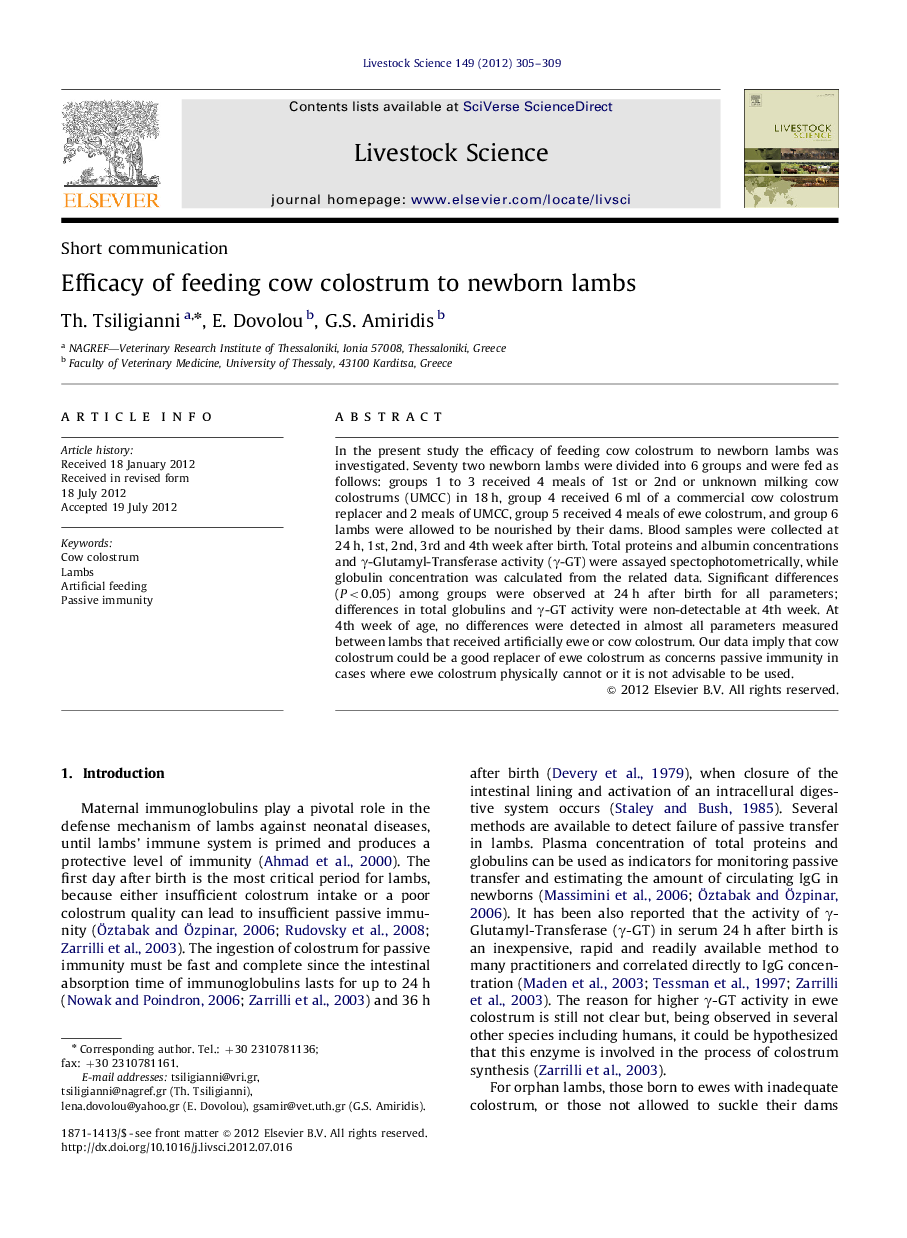| Article ID | Journal | Published Year | Pages | File Type |
|---|---|---|---|---|
| 2447429 | Livestock Science | 2012 | 5 Pages |
In the present study the efficacy of feeding cow colostrum to newborn lambs was investigated. Seventy two newborn lambs were divided into 6 groups and were fed as follows: groups 1 to 3 received 4 meals of 1st or 2nd or unknown milking cow colostrums (UMCC) in 18 h, group 4 received 6 ml of a commercial cow colostrum replacer and 2 meals of UMCC, group 5 received 4 meals of ewe colostrum, and group 6 lambs were allowed to be nourished by their dams. Blood samples were collected at 24 h, 1st, 2nd, 3rd and 4th week after birth. Total proteins and albumin concentrations and γ-Glutamyl-Transferase activity (γ-GT) were assayed spectophotometrically, while globulin concentration was calculated from the related data. Significant differences (P<0.05) among groups were observed at 24 h after birth for all parameters; differences in total globulins and γ-GT activity were non-detectable at 4th week. At 4th week of age, no differences were detected in almost all parameters measured between lambs that received artificially ewe or cow colostrum. Our data imply that cow colostrum could be a good replacer of ewe colostrum as concerns passive immunity in cases where ewe colostrum physically cannot or it is not advisable to be used.
